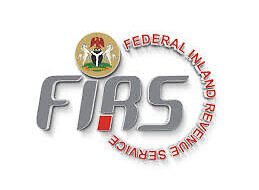Vice President Kashim Shettima has praised the African Export-Import Bank (Afreximbank) for evolving into a core player in Africa’s economic transformation. Since its founding in 1993 in Abuja, the bank has channelled over $100 billion into various African economies — with $52 billion going directly to Nigeria.
Speaking at the 2025 Afreximbank Annual Meetings in Abuja, themed “Building the Future on Decades of Resilience,” Shettima, represented by his adviser Dr Tope Fasua, reaffirmed Nigeria’s commitment to deepening its ties with the bank.
“These are not merely projects, they are strategic investments in resilience, in sovereignty, and in shared prosperity,” Shettima said while highlighting the bank’s local projects.
Afreximbank: $3bn in Energy, $1bn in Health, and a Continental Strategy
In Nigeria, Afreximbank’s influence is visible. Projects like the African Medical Centre of Excellence, recently launched in Abuja, are tackling medical tourism by offering advanced treatment for cancer, heart diseases, and blood disorders. The $3 billion petroleum trade facility is supporting Nigeria’s energy independence and fuelling its refining capabilities.
The bank has also invested in African Quality Assurance Centres in Kaduna and Ogun, which help prepare local products for export. Meanwhile, a $300 million export-manufacturing project is expanding industrial hubs across four Nigerian states: Cross River, Enugu, Imo, and Kano.
Central Bank Governor Olayemi Cardoso urged the bank to address protectionist trends and global market shifts. “Institutional resilience is essential to Africa’s economic future,” he noted.
Over its 32-year journey, Afreximbank has mobilised $250 billion continent-wide. According to President Prof. Benedict Oramah, the bank has stood strong through health and economic crises, including COVID-19, supply chain disruptions, and commodity price shocks.
Driving Resilience With New Tools and Vision
The bank’s next chapter is focused on renewal. Its tools now include the Pan-African Payment and Settlement System (PAPSS), Africa Trade Gateway, AfrexInsure, and a Concessional Finance Window designed to offer flexible funding options amid tightening global liquidity.
Group Chief Economist Dr Yemi Kale said the continent, though tested, has shown strong endurance. “While growth has slowed, Africa remains less shaken than many regions,” he noted.
Shettima’s message echoed the same belief. “Resilience isn’t just survival—it’s about adapting, leading, and reimagining the future,” he said.







One reply on “Shettima Hails Afreximbank’s $52bn Push for Nigeria”
[…] Afreximbank has named Dr George Elombi as its incoming President and Chairman of the Board of Directors, following a high-level shareholder vote during its 32nd annual meetings in Abuja. The appointment, made on 28 June 2025, marks the bank’s fourth presidency since its founding in 1993. […]